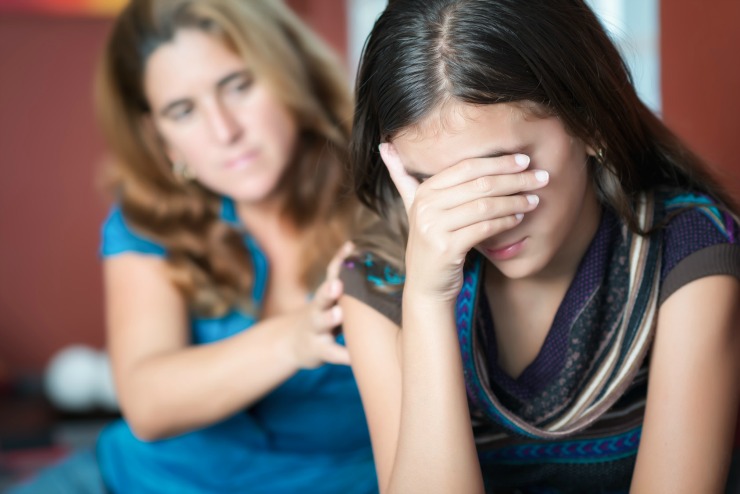
Bullying is pervasive in today’s day and age. Kids experience bullying at school, online, or even in their very own backyards. The reasons why kids who are bullied and cyberbullied never report a bully to their parents may surprise you. Here are the top four reasons children say they don’t tell their parents about bullying.
1. They Fear Retaliation From Reporting The Bully
One of the main reasons kids give for not reporting bullying and cyberbullying stems from their fear of retaliation. This is especially true if it's a popular student who's responsible. Children don’t want a reputation of being a “rat” or a “snitch.” Deep down they may even believe that allowing the bully to continue the behavior will somehow allow them access to that inner circle of popularity. Tell your children to report bullying to a trusted adult. Reporting is not “snitching,” it's the correct action to help someone get out of trouble. Let them know that telling a trusted adult is the best way to address the issue.
2. They Don’t Recognize Bullying
Sometimes, children fail to tell their parents about bullying and cyberbullying because they don’t recognize it when it happens. Bullies can be very smart and cunning, and may act very subtly. For example, bullies may spread false rumors at school or online, or they may deliberately exclude children from activities or group chats. These aren’t direct attacks, but they are hurtful just the same. Parents and schools should help children understand what bullying and cyberbullying are. Situations are addressed quicker when children recognize bullying in real life and online, and have the knowledge of what to do when it happens.
3. They Feel Shame
Kids around 10 years old start to feel a sense of shame related to being bullied. In fact, many children at this age claim they thought they deserved it. It’s also around this age that the bullies start to learn bad behavior can pay off. Other children are nicer to bullies because they fear the same treatment. Remind your children that any bullying it is not their fault, nobody deserves to be bullied. Let them know that you are there to support and help them.
4 . They Think No One Will Help
Bullying can have a lasting impact on children of all ages, so it’s important to take it seriously. Bullying and cyberbullying are not the same as normal peer conflict. Listen calmly and ask questions if your child comes to you about being bullied at school or cyberbullied online. Tell your child to report any incident to a trusted adult. Work together to come up with a solution, as this empowers your child and helps keep the lines of communication open. Build up your child’s self esteem through encouragement. Remind them that they do not have to accept any physical, emotional, or verbal behaviors from other children that make them uncomfortable.
Per a report published by the Institute of Educational Sciences in 2010, some 64% of children who were bullied never said a word to anyone about it. This is a sobering statistic, but it is one that can improve over time. Talking openly about bullying and cyberbullying with children, both at home and in school, is a very important first step to making them feel comfortable to report bullies. Additionally, monitor their technology communications with , get alerts to potential issues like cyberbullying, depression, and suicidal thoughts.
Bark helps families manage and protect their children’s digital lives.




